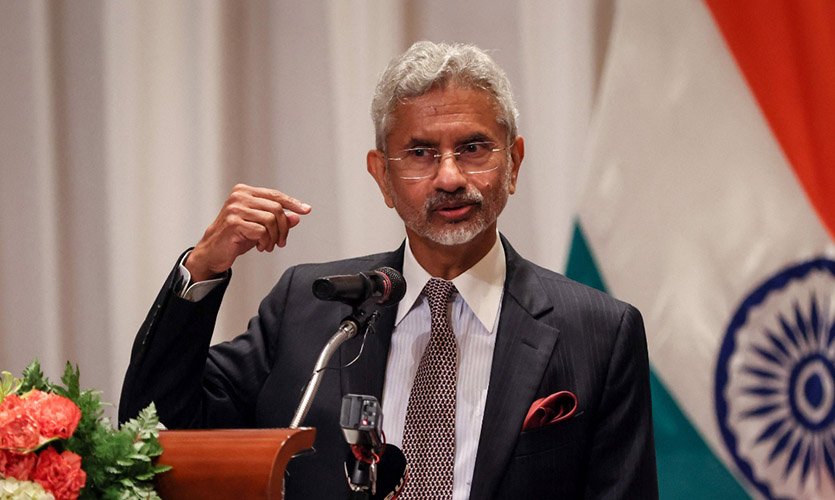India’s External Affairs Minister Dr S Jaishankar has issued a clarification on the phrase “epicentre of terrorism”, which he had used to describe Pakistan last month at the United Nations Security Council, saying that he could have said something harsher.
In an apparent attack on the neighbouring country, Dr Jaishankar said that Pakistan is promoting cross-border terrorism along with harbouring terror activities over the past many years to destabilise India’s sovereignty.
In the interview with an Austrian TV news channel, the minister said that calling a country that attacked the Indian parliament and one that is responsible for the 2008 Mumbai bombings an “epicentre of terrorism” is quite diplomatic.
“Because you’re a diplomat, doesn’t mean you’re untruthful. I could use much harsher words than epicentre. Considering what has been happening to us, I think epicentre is a very diplomatic word,” said Jaishankar in an interview with Austria’s ZIB2 podcast.
Replying to the news anchor’s question that Pakistan as a country does not promote terrorism, Dr Jaishankar said that terrorist camps are being operated in broad daylight in prime cities, with active recruitment and financing.
“Can you really tell me that the Pakistani state doesn’t know what’s going on? Especially (when) they are being trained in military-level combat tactics,” responded the minister.
He also expressed disappointment over European countries not taking a strong stand on Islamabad’s role in supporting terror groups that were especially working against India. “When we speak about judgments and principles, why don’t I hear sharp European condemnation of these practices that have been going on for decades?” asked the minister.
Dr Jaishankar, who is on his three-day maiden visit to Austria, held a bilateral meeting with Austrian Foreign Minister Alexander Schallenberg and said that the impacts of cross-border terrorism cannot be limited within a region, especially when they are deeply linked to the drugs and illegal weapons trade, and other forms of international crime.
The comments come weeks after the foreign minister criticised Pakistan at the UNSC. In his address at the gathering, Dr Jaishankar made it very clear that the country that hosted globally designated terrorists like Osama bin Laden has no right to lecture India or anyone at the UN forum on peace.
Responding to Pakistan’s Minister of State for Foreign Affairs Hina Rabbani Khar’s allegation that “no country had used terrorism better than India”, Dr Jaishankar had said that Islamabad should remind themselves of what goes on its backyard before indulging in such criticisms.
“In terms of what they are saying, the truth is everybody, the world today, sees them as the epicentre of terrorism,” he said.
During his recent interview, Dr Jaishankar also made India’s relationship with Russia clear amid the conflict with Ukraine, and clarified why New Delhi refrained from criticising Putin’s actions. He stated that the current situation is very complicated, and that New Delhi makes judgements based on its own foreign policy and long-term interests.
“Long-term Relationship With Moscow”
“We have had a long-term relationship with Moscow. I think it is important to look at the history of the relationship (with Russia)… it was a relationship built in a period when Western democracies used to arm a military dictatorship called Pakistan and denied India’s defensive weapons,” he said.
“If we (are) talking about principles, let’s talk about (a) little bit of history out here. Western democracies, for whatever reason, decided that through (a) natural partner in our part of the world a military dictatorship,” S Jaishankar further stated.
On Tuesday, Dr Jaishankar, in a joint statement with his Austrian counterpart Alexander Schallenberg, said that India remains “deeply concerned” by the Ukraine crisis as this is “not the era of war”.
He also emphasised that the conflict, which has pushed up prices of essential commodities like food, fuel and fertilisers, has adversely impacted developing nations. He also mentioned that India, while presiding over the G20 this year, has the responsibility of raising this issue on behalf of the global south.
Urging Ukraine and Russia to return to the path of diplomacy, Dr Jaishankar said that this is not the era of war, and that differences must be settled on the negotiating table. “It is imperative that there is a return to dialogue and diplomacy. Prolonged conflict will not serve the interests of any party,” he explained.
Meanwhile, Schallenberg expressed his concerns over the illegal Indian immigrants crisis. He said that Austria witnessed an “exploding number of Indians” who arrived at its borders as illegal immigrants last year.
“The problem is not immigration…We want that, we need that. The problem is ‘illegal’ immigration,” he said.










